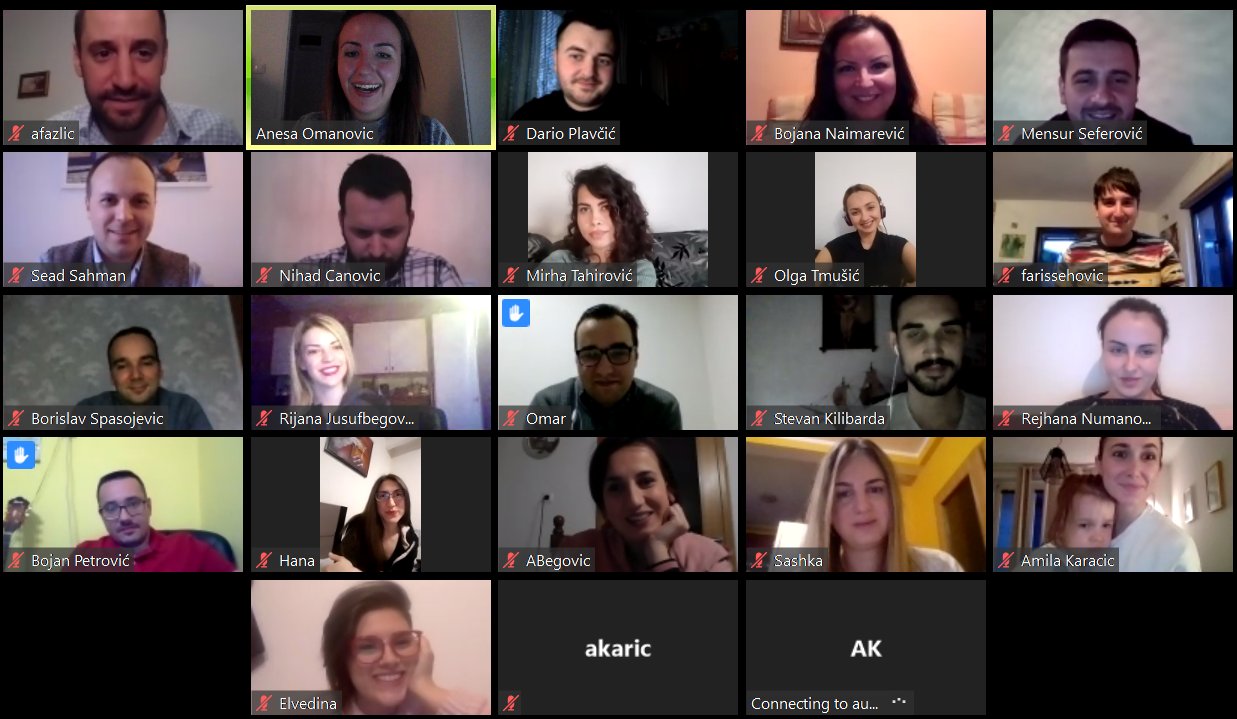
Democratic governance will play a crucial role in both responding to the COVID-19 pandemic and dealing with the political and economic aftermath. Institutions grounded in transparency, responsiveness, accountability and the rule of law are better equipped to mitigate public health crises and maintain social and economic stability. At the same time, the crisis has proved a tempting invitation to autocrats around the world to suppress information, sow division and entrench their own power.
Working with our partners around the world, the International Republican Institute (IRI) is tackling these challenges head on. Here are a few of the ways our programs are adapting to the “new normal” and confronting the COVID-19 crisis:
Helping governments build trusted, open channels of communication for effective public health mobilization.
IRI is continuing our work strengthening legislatures around the world, adapting our in-person programs to a virtual setting. In Panama, we’re leveraging technology by co-hosting the ADEN School of Government’s Legislative Leadership Certificate Program online rather than in the National Assembly. Despite the change in setting, 23 government officials participated in the training. In Ukraine, an IRI partner facilitated the country’s first-ever online city council session to ensure continuity and democratic governance despite the pandemic. Efforts like this help legislators communicate how public funds are being put to work to protect constituents’ health and economic wellbeing.
IRI is also working closely with governments to build effective communications strategies that provide citizens with timely and accurate information. In the Maldives, IRI is training the President’s Office and executive branch on coordinated communications and crisis messaging to keep Maldivians informed and enhance public trust. The Maldivian public has responded positively to the President’s Office’s efforts.
Fighting back against disinformation and influence campaigns.
Both the Chinese Communist Party (CCP) and the Kremlin have seized on the COVID-19 crisis to weaken European social cohesion and the Transatlantic relationship. IRI’s Beacon Project is supporting our partners across Europe in their efforts to counter disinformation by collecting information on the coordinated responses to the “infodemic,” supporting these responses and sharing best practices throughout the region. The Beacon Project has also lent its expertise to a Czech-based, regional COVID-19 taskforce dedicated to countering Chinese and Russian soft-power influence operations surrounding the pandemic. And IRI’s China BRIDGE project is working with partners around the world to research and counter the CCP’s efforts to capitalize on the longer term economic and social challenges facing fragile democracies as a result of COVID-19.
Bolstering civil society and grassroots activists with information, best practices and social support necessary for tackling the public health crisis.
In Bosnia-Herzegovina, IRI has partnered virtually with the Advanced Leadership in Politics Institute (ALPI) to coordinate social media campaigns like #stayhome—an effort to slow the pace of the pandemic by encouraging social distancing. IRI partners also hosted a virtual hackathon in Latvia, in which the winning team designed and produced hundreds of reusable 3D-printed medical masks per day—showing how citizen-driven initiatives can fill gaps left by central governments and the private sector.
In Lebanon, IRI is supporting grassroots activists as they determine how best to continue the fight for democracy despite challenges posed by the pandemic. IRI experts met virtually with a subset of the Lebanon Contact Group to share lessons learned from protest movements around the world, like how to integrate into the formal political process.
Supporting local governments in creating transparent and accountable responses to COVID-19.
In Georgia, participants of IRI’s Generation of Active Leaders (GOAL) program revamped their virtual tools to keep citizens informed and respond to their questions and needs. They’ve taken the initiative to adapt their program after spending the past 18 months strengthening connections between the public and local government—a milestone in democratic governance that has improved their municipalities’ responses to the pandemic.
In Ecuador, IRI is using webinars to continue hosting exchanges between municipalities, with the aim of sharing best practices on transparency. When asked about the transition to webinars, a government official in Ecuador remarked, “We have never used Zoom in the [mayor’s office] of Cuenca. It is not common and not something that councilmen use, but the tutorial workshop has been a great help for our day-to-day work.”
Empowering the next generation of democratic leaders.
With young adults at the highest risk of pandemic-related layoffs, preventing disaffection and keeping youth engaged in civil society is critical to protecting and advancing democracy. In Mauritania, the IRI-incubated Youth Mediator for Peace (YMP) Network responded to the outbreak of COVID-19 by rapidly mobilizing a nationwide public health campaign. Youth leaders applied the skills gained from IRI trainings and mentorship to design and disseminate virus prevention infographics on social media, conduct community handwashing demonstrations and convene dialogues on community control responses with local government leaders. Today, these campaigns will help save lives; in the years to come, they will draw critical young voices into the political process.
Members of IRI’s flagship youth program, Generation Democracy, are also launching projects to counter misinformation and improve public service delivery in response to the crisis. In Pakistan, one Generation Democracy alum has launched the Coronavirus CivicActs Campaign, a citizen-focused initiative that debunks rumors, promotes verified information and gathers daily updates on the pandemic.
Democratic governance is integral to an effective global response to the COVID-19 pandemic. IRI will continue to adapt and target our programs to meet the challenges ahead, building strong democratic institutions that are crucial to overcoming these obstacles and delivering a secure and prosperous future.
Top